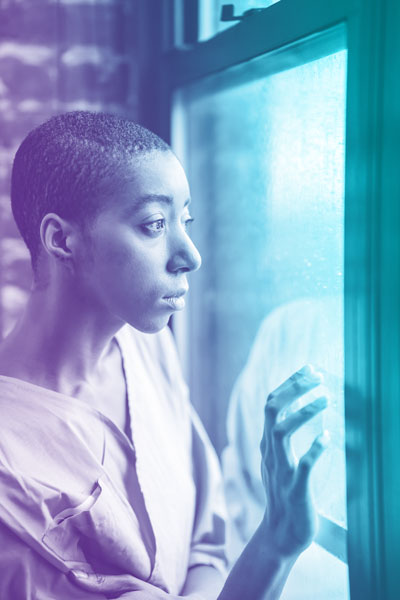Addiction and Mental Health During Emergencies Like Hurricanes
Severe weather events such as hurricanes are very stressful for people who live in hurricane-prone areas. It is important to have a plan and be prepared for the storm. Stay informed about the status of the hurricane and follow the advice of authorities. Prepare your home and property for the hurricane. Stay indoors during the storm and away from windows. Be aware of potentially dangerous situations, such as flooding or high winds, and take precautions. If you have children help them cope with their fear and anxiety by talking to them openly about what is happening and reassuring them that they are safe. And, take care of yourself emotionally and physically during and after the hurricane.

For those with mental illness and/or addiction, events such as hurricanes can be triggers. People who are struggling with addiction may find that their use of drugs or alcohol increases during and after a natural disaster. Those in recovery may be prone to relapse. The stress of the disaster can cause symptoms of mental illness, such as anxiety and depression. Severe weather events like hurricanes can also disrupt treatment for mental illness and addiction, making it difficult to get the help they need. For the person struggling with mental illness or addiction, it is important to get help before, during, and after the event.
Such severe weather events can present a number of challenges when it comes to getting help for addiction. For example, during a hurricane, power outages and damage to infrastructure can make it difficult to access treatment facilities or get emergency assistance. In the aftermath, people may be displaced from their homes and cut off from support systems, making it even harder to find help.
However, there are still options available for those who need addiction treatment during a severe weather event. Treatment facilities may be able to offer services by phone or online if they cannot physically get to them. There are hotlines and other resources available to help them find treatment options and get emergency assistance. Some disaster relief organizations may offer temporary housing or other support services.
Keep in mind that addiction is a chronic disease, so even if they cannot get help right away, they should do their best to hold on until treatment is available. For those in recovery, they should utilize their recovery skills to the best of their ability. For those in active addiction, we suggest they try to moderate use if at all possible until help is available.
For people with mental health challenges during and after events such as hurricanes, there are a number of resources that can provide help and support. Many mental health professionals offer counseling and therapy services to help people deal with the stress and trauma of a natural disaster. These services can be provided in person, by phone, or online. There are often support groups available to help people cope with the aftermath of a natural disaster. These groups can provide emotional support and practical advice on how to deal with the stresses of the situation. In some cases, medication may be necessary to help manage the symptoms of a mental health problem. If a person is prescribed medication, it is important than ever that they take it as directed.
For someone facing mental health challenges during a severe weather event like a hurricane, it is important that they should do their best to take care of themselves during this time of stress. We recommend rest, if possible, healthy foods, and exercise, if it is an option, during the event. These people should avoid alcohol and drugs, which can make mental disorder symptoms worse. It is important they keep communication open with their family and loved ones during this time, if at all possible. Family can provide support and understanding that can be helpful in dealing with the stresses of a hurricanes and other severe weather events.
Events such as hurricanes can be hard on everyone, but they can be especially difficult for people with mental illness and addiction. That said, there are resources and various techniques that these people can utilize to help them through this challenging time.
For more information and updates about hurricanes and how to prepare, visit the National Hurricane Center at nhc.noaa.gov or, for Florida Residents, floridadisaster.org.

